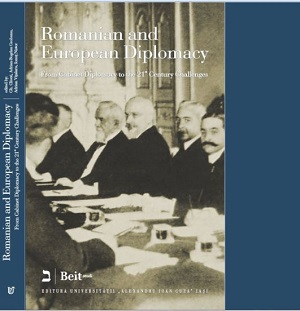 Sarajevo 1914: Spark and Impact
Sarajevo 1914: Spark and Impact
An International Conference about the South Slav Question
26-28 June 2014
The murders in Sarajevo on 28 June 1914 of Archduke Franz Ferdinand and his wife were notoriously the ‘spark’ that lit up the Great War of 1914-1918. They were evidence of an unresolved ‘South Slav problem’ in the Austro-Hungarian Empire, whose imperial mission was at odds with popular aspirations in the Balkans. The regional context in which the murders occurred remains controversial. Some aspects have been well considered by historians over the past century but many are completely under-researched. Above all, there have been few attempts to think about the causes and repercussions of the South Slav problem in the interaction of its local, regional and international dimensions. In 1918, as Austria-Hungary collapsed the new state of Yugoslavia would be created on its ruins.
Aims and Organization
This major two-day international conference at the University of Southampton aims, in contrast to most other British events about the 1914 anniversary, to tackle this important theme. It brings together 23 historians from across Europe, including experts from Croatia, Serbia and Austria, to debate the subject from different angles. The conference also uses the Sarajevo murders as a focal point from which to branch out and consider the destabilizing impact on the Habsburg Empire and on Europe as a whole.
On the one hand, we will be analysing the long and short-term sources of unrest which led to the murders in Bosnia-Herzegovina: for example, Habsburg ‘colonial’ behaviour in the Balkans; the context of South Slav unrest (its Serb, Croat and Slovene ‘solutions’); social tensions in Bosnia; terrorist acts against Habsburg officials; the public reputation of Archduke Franz Ferdinand; and Serbia’s role in the murders. On the other hand, we will consider the short and long-term impact of ‘Sarajevo’ with a focus on its regional context but including wider echoes: the reaction to the Sarajevo murders among the Habsburg elite, in the provinces of Austria-Hungary, and among the other Great Powers of Europe; the emergency measures in Bosnia, including trials and executions, in the context of ‘total war’; and the commemoration and memory of Sarajevo in later decades.
This is therefore a unique opportunity to hear historians discussing a subject which is crucial to understanding why the First World War took place and why the Habsburg Empire collapsed in 1918, transforming south-eastern Europe for the twentieth century.
Speakers:
Keynote speakers are:Christopher Clark (Cambridge), Lothar Höbelt (Vienna).
Other speakers include: Stejpan Matković, Iskra Iveljić, Mile Bjelajac, Roy Bridge, Thomas Otte, Robin Okey, Tamara Scheer, Günther Kronenbitter, Dominic Lieven, Mark Cornwall, Danilo Šarenac, Jonathan Gumz.













